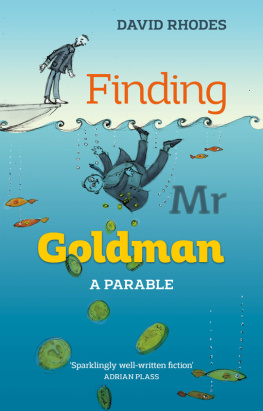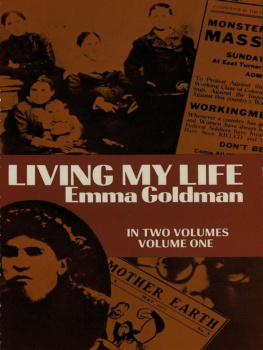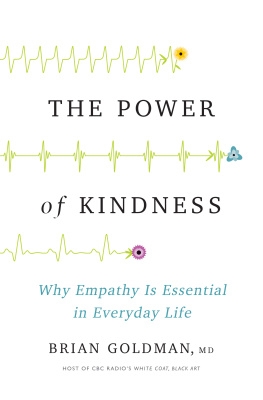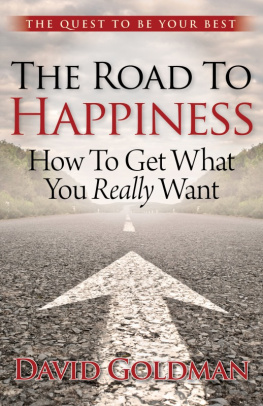Robert Goldman - Reading Ads Socially
Here you can read online Robert Goldman - Reading Ads Socially full text of the book (entire story) in english for free. Download pdf and epub, get meaning, cover and reviews about this ebook. year: 2005, publisher: Taylor and Francis, genre: Romance novel. Description of the work, (preface) as well as reviews are available. Best literature library LitArk.com created for fans of good reading and offers a wide selection of genres:
Romance novel
Science fiction
Adventure
Detective
Science
History
Home and family
Prose
Art
Politics
Computer
Non-fiction
Religion
Business
Children
Humor
Choose a favorite category and find really read worthwhile books. Enjoy immersion in the world of imagination, feel the emotions of the characters or learn something new for yourself, make an fascinating discovery.
- Book:Reading Ads Socially
- Author:
- Publisher:Taylor and Francis
- Genre:
- Year:2005
- Rating:5 / 5
- Favourites:Add to favourites
- Your mark:
- 100
- 1
- 2
- 3
- 4
- 5
Reading Ads Socially: summary, description and annotation
We offer to read an annotation, description, summary or preface (depends on what the author of the book "Reading Ads Socially" wrote himself). If you haven't found the necessary information about the book — write in the comments, we will try to find it.
Reading Ads Socially — read online for free the complete book (whole text) full work
Below is the text of the book, divided by pages. System saving the place of the last page read, allows you to conveniently read the book "Reading Ads Socially" online for free, without having to search again every time where you left off. Put a bookmark, and you can go to the page where you finished reading at any time.
Font size:
Interval:
Bookmark:

READING ADS SOCIALLY
This book argues that advertisements are an ideal site for observing how the logic of the commodity form expresses itself culturally and socially. The aim is to produce a study of visual ideology which will move students to consider the deep ideological structure of ads. Though our media pundits blather endlessly about ads, the fixation on whether ads are deceptive or subliminal diverts us from the real material and ideological impact of ads in modern society. The material impact of ads lies in producing and reproducing a currency of sign values that can be joined to commodities; ideologically the sheer number of ads that we process numbs us into an acceptance of the social logic imposed by the framework of the commodity form. It is here that mystification takes place, it is here that we are encouraged to embrace reified social logic as if it were natural.
The author examines how advertisements frame meanings, and how these frames help to organize the ways we see the world. By dissecting and decomposing these frames, advertisements can be made to locate the meaning of hegemony in relation to commodity culture. The book shows how ads commodity meaning. It also tracks the cultural contradictions of commodifying meaning in consumer advertising and examines ad campaigns which attempt to distance themselves from the rhetoric of the commodity self, pseudo-individuality and commodity fetishism. Original, powerfully argued and full of illuminating examples, this book will fast become a benchmark in the study of advertising culture.
Robert Goldman is Associate Professor of Sociology at Lewis and Clark College, Portland, Oregon.
READING ADS SOCIALLY
Robert Goldman

London and New York
First published 1992
by Routledge
11 New Fetter Lane, London EC4P 4EE
Simultaneously published in the USA and Canada
by Routledge
a division of Routledge, Chapman and Hall Inc.
29 West 35th Street, New York, NY 10001
Routledge is an imprint of the Taylor & Francis Group
This edition published in the Taylor & Francis e-Library, 2005.
To purchase your own copy of this or any of Taylor & Francis or Routledges collection of thousands of eBooks please go to www.eBookstore.tandf.co.uk.
1992 Robert Goldman
All rights reserved. No part of this book may be reprinted or reproduced or
utilized in any form or by any electronic, mechanical, or other means, now
known or hereafter invented, including photocopying and recording, or in any
information storage or retrieval system, without permission in writing from the
publishers.
British Library Cataloguing in Publication Data
A catalogue record for this book is available from the British Library.
Library of Congress Cataloging in Publication Data
Goldman, Robert, 1949
Reading ads socially/Robert Goldman.
p. cm.
Includes bibliographical references and index.
1. AdvertisingSocial aspects. 2. AdvertisingSocial aspects
United States. I. Title.
HF5821.G58 1992
659.10420973dc20 CIP
ISBN 0-203-97694-0 Master e-book ISBN
ISBN 0-415-05399-4 (hbk)
ISBN 0-415-05400-1 (pbk)
Copyright 2004/2005 Mobipocket.com. All rights reserved.
Reader's Guide
This ebook has been optimized for MobiPocket PDA.
Tables may have been presented to accommodate this Device's Limitations.
Table content may have been removed due to this Device's Limitations.
Image presentation is limited by this Device's Screen resolution.
All possible language characters have been included within the Font handling ability of this Device.
Reading ads is an intrinsically social process, even when the reading process is performed alone. For me, it has also been a social activity done in the company of students, colleagues and friends. The readings included in this volume have sometimes been collaborative endeavors. Four of these chapters were co-authored in their original versions with Steve Papson. My collaborators, however, should not be held responsible for the revisions and shifts which I have subsequently made in the theoretical arguments and the textual readings. Over the years, many students have joined me in dialogues about the critical analysis of ads and these studies are enriched by their observations. It is hard to single out a few from the many, but I thank Mindy Faber, Adam Weisberg, Sarah Jones, Noreen Nakagawa and Mark Viehe. I am grateful to Sharon Smith, Jane Atkinson, Doug Kellner, Mike Montagne, Adam Weisberg, Julia Watson, Rika Goldman and Joe Goldman for their thoughtful criticism of various portions of this manuscript as they took shape. David Reeck assisted in getting the ads reproduced. Finally, I owe a significant intellectual debt to John Wilson and Steve Papson, each of whom has endured more than their share of theoretical talk about advertising and commodities and signs.
Those chapters based on prior versions originally appeared as:
Robert Goldman & John Wilson, Appearance & Essence: The Commodity Form Revealed in Perfume Advertisements, Current Perspectives in Social Theory, 1983, 4:11942. Greenwich, Conn.: JAI Press.
Robert Goldman, Marketing Fragrances: Advertising & the Production of Commodity Signs, Theory, Culture & Society, 1987, 4, 4 (November): 691726.
Robert Goldman, Legitimation Ads, Part I: The Story of the Family, in Which the Family Saves Capitalism from Itself, Knowledge & Society: Studies in the Sociology of Culture, 1984, 5:24367. Greenwich, Conn.: JAI Press.
Robert Goldman, Deborah Heath & Sharon L.Smith, Commodity Feminism, Critical Studies in Mass Communication, 1991, 8, 3 (September): 33351.
Robert Goldman & Steven Papson, Levis & the Knowing Wink: Commodity Bricolage, Current Perspectives in Social Theory, 1991, 11:6995. Greenwich, Conn.: JAI Press.
Robert Goldman & Steven Papson, The Postmodernism that Failed, in David Dickens & Andrea Fontana (eds), Postmodernism & Social Inquiry. Chicago: University of Chicago Press (forthcoming).
Ads have become the trivia of daily life. They are a favorite topic of the commercial soft-news media which good-naturedly present wry or clever stories about the hot advertising spot of the momentSpuds McKenzie, the little old lady from Wendys, Joe Isuzu or Bo Jackson. With a wink and a grin, reporters remind us of absurd advertising excesses such as hundreds of thousands of dollars per half minute of Super Bowl ad time. Since advertisements are treated as part of the entertainment complex, it is easy to consider them immune from the world of ideology. Presiding over a world where images reign supreme, the mass media in the 1980s drifted toward professing to be wise about advertisingaware that ads promote a hazy realm of image management and simulation. In a society that extols the freedom of personal choice, the freedom to be an individual, there is some dissonance to resolve with respect to advertising. Though advertising is widely acknowledged as having an impact on society, most people claim to have acquired personal immunity from its effects. Cries of manipulation offer a comforting resolution of the contradiction between individuality and the conformist effect ads have on us. Notions like subliminal seduction have gained popular appeal because they glamorously rationalize the power of ads: the self cannot be held to be weak or gullible if tricks were used. Unfortunately, such glitzy and spectacular criticism diverts attention from the far more mundane structural role advertising plays in reproducing social domination.
Next pageFont size:
Interval:
Bookmark:
Similar books «Reading Ads Socially»
Look at similar books to Reading Ads Socially. We have selected literature similar in name and meaning in the hope of providing readers with more options to find new, interesting, not yet read works.
Discussion, reviews of the book Reading Ads Socially and just readers' own opinions. Leave your comments, write what you think about the work, its meaning or the main characters. Specify what exactly you liked and what you didn't like, and why you think so.













